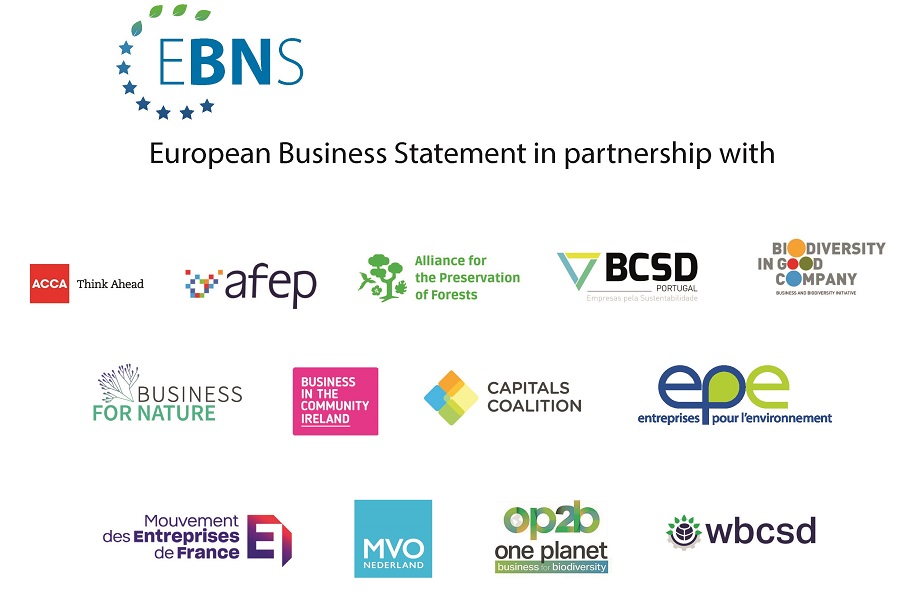CEO Joint opinion piece, published in French in Les Echos on June 5th, 2025
Ten years ago, the Paris Agreement set the world on a new pathway to carbon neutrality. To drive this transformation, Europe has taken a bold step: the Green Deal.
As leaders of major companies across all sectors, we have contributed significantly to this initiative by making the path towards carbon neutrality a key strategic priority and investing billions of euros in practical solutions with tangible results. Between 2015 and 2023, France’s economy and consumption grew by 9% and 11% respectively in constant euros, while their environmental impact significantly decreased: 17% fewer emissions and a 7% reduction in the carbon footprint. These results show that economic growth and emissions reduction can go hand in hand, prompting us to maintain this momentum.
The European model
Over the past decade, our vision for the green transition has also expanded to include other issues related to planetary limits. Climate disruption is a reality, as are planetary boundaries. Some current tensions already stem from exceeding these limits, including concerns about health, conflicts over natural resources, and forced migration. Our common interest lies in creating a society that thrives and meets everyone’s basic needs within those limits.
Europe’s development and green transition model is well-equipped to tackle these challenges. The intricate democratic processes that shape it provide stability and a perspective that encourages action. The regulatory framework arising from the Green Deal has become a cornerstone of our strategies and investments. While it is commendable and essential to streamline this regulation, any efforts to do so must uphold its ambition.
Still, on both sides of the Atlantic, some are urging a stop to the green transition and putting off green investments. These voices miss the point: the green transition is not a barrier to our future prosperity, but rather a guarantee of it. Businesses that invest in the transition will become the most resilient and innovative. On the other hand, those who delay will struggle with rising energy costs and dwindling resources. The transition is also crucial for boosting our competitiveness, as it drives us to be more inventive, efficient, and sufficient, using fewer resources to meet society’s needs.
Industrial revolution
Continued investment in sustainable sectors of the circular economy, such as electrification, carbon-free energy, water, biomass, new mobility, and building retrofits, is vital for success. Reindustrialisation driven by these sectors will not only benefit each nation’s economy but also grant us much-needed strategic autonomy. In the new global economy, where mastering these sectors presents a significant challenge, environmental excellence is no longer a hindrance but rather a vital competitive advantage for our future. Europe must build on this strength to shape its industrial strategy. The result will be revitalised labour markets, a healthy living environment, and restored industrial sovereignty. This is how we can regain control over our future.
The new industrial revolution requires the collective effort of all stakeholders: businesses and financial institutions directing their resources towards the transition; governments steering the transformation and streamlining regulations to promote green innovation and accelerate the implementation of solutions; and citizens actively engaging in changes to their lifestyles and activities. The convergence of these efforts will make the difference.
When some consider giving up, we stick to our commitments. At stake are our health, purchasing power, and the survival of our industries and jobs. Also at stake is the attractiveness of our cities, the prosperity and beauty of our countryside, the competitiveness of our businesses, and our well-being and sovereignty. Europe, with its Green Deal, is a decade ahead in this green industrial revolution. We must remain steadfast and take pride in doing so to affirm our leadership. This is the moment to define our sphere of action, our standards, and our vision. Europe can and must come up with a game plan.
This opinion piece is a joint initiative of Estelle Brachlianoff, CEO of Veolia, and Patrick Pouyanné, CEO of TotalEnergies, the new chairwoman and the outgoing chairman, respectively, of the French association Entreprises pour l’Environnement (EpE).
The other signatories are:
Patrick André, Chief Executive, Vesuvius
Pierre Anjolras, Chief Executive Officer, VINCI
Daniel Baal, Chairman, Crédit Mutuel Alliance Fédérale
Benoit Bazin, Chairman and Chief Executive Officer, Saint-Gobain
Véronique Bédague, Chairwoman and Chief Executive Officer, Nexity
Thierry Blandinières, Chief Executive Officer, InVivo
Olivier Blum, Chief Executive Officer, Schneider-Electric
Jean-Laurent Bonnafé, Director and Chief Executive Officer, BNP Paribas
Thomas Buberl, Group Chief Executive Officer, AXA
Mathieu Chabran, Co-fondateur, Tikehau Capital
Cedric Charpentier, Chief Executive Officer, Groupe Diot-Siaci
Thierry Déau, Chief Executive Officer, Meridiam
David Dupont-Noël, Chief Executive Officer, Deloitte France et Afrique Francophone
Aiman Ezzat, Chief Executive Officer, Capgemini
Jean-Pierre Farandou, Chairman and Chief Executive Officer, SNCF
Laurent Favre, Chief Executive Officer, OPmobility
Antoine Flamarion, Co-fondateur, Tikehau Capital
Bernard Fontana, Chairman and Chief Executive Officer, EDF
Olivier Gavalda, Chief Executive Officer, Crédit Agricole SA
Xavier Guesnu, Chief Executive Officer France, Holcim
Pascal Imbert, Chairman and Chief Executive Officer, Wavestone
François Jackow, Chief Executive Officer, Air Liquide
Philippe Kehren, Chief Executive Officer, Solvay
Slawomir Krupa, Chief Executive Officer, Société Générale
Thierry Le Henaff, Chairman and Chief Executive Officer, Arkema
Mathias Lelievre, Chief Executive Officer, ERM EMEA
Catherine MacGregor, Chief Executive Officer, Engie
Cyril Malargé, Chief Executive Officer, Sopra-Steria
Philippe Pascal, Chairman and Chief Executive Officer, Groupe ADP
Pierre Pauliac, Co-Chief Executive Officer, Suez
Sébastien Petithuguenin, Chief Executive Officer, Paprec
Arnaud Pieton, Chief Executive Officer, Technip Energies
François Henri Pinault, Chairman and Chief Executive Officer, Kering
Thomas Reynaud, Group Chief Executive Officer and Member of the Board of Directors, groupe iliad
Anne Rigail, Chief Executive Officer, Air France
Thierry Schietecatte, Chairman, Groupe CARSO
Jan Schouwenaar, Chairman, Primagaz
Maxime Séché, Chief Executive Officer, Séché Environnement
Jean-Dominique Senard, Chairman of the Board of Directors, Renault
Jérôme Stubler, Chief Executive Officer, Equans France
Guillaume Texier, Chief Executive Officer, Rexel



